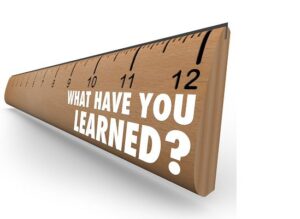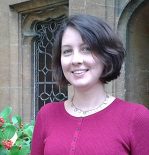 This sub-theme is co-convened by:
This sub-theme is co-convened by:
Aaron Benevot, GEMR/UNESCO
Rhiannon Moore, Young Lives, University of Oxford
Measures of student learning, based on the growing number of international, regional and national assessments, are now a central part of educational monitoring, as policy priorities have shifted from a focus on universal access to education to one based on access and learning.
Understanding the quality of teaching – and its impact on learning – are crucial for sustainable development. Current measures focus mainly on proficiencies in foundational skills, such as literacy and numeracy, and whilst attention is sometimes devoted to other subjects, this is notably less frequent. Yet in our fast-changing and unpredictable world, characterised by pronounced economic, political and environmental challenges, other areas of teaching and learning also need consideration.
In assessing teaching and learning for sustainable development, many questions emerge. We welcome papers from practitioners and researchers addressing the following (or related) questions, and in which different methodologies are employed as deemed appropriate:
- What metrics are best employed to capture competencies such as problem-solving, interpersonal communication, critical thinking and creativity, which are considered vital for sustainable development? Can (and should) learning assessments assess knowledge and skills acquired through extracurricular or informal activities, alongside those taught in the classroom? Should assessment seek to measure the learning of values and attitudes?
- How do we create rigorous assessments that are comparable across diverse contexts, and recognise diversity in learners? How do we strike the right balance between concept validity, cross-country comparability and local precision in international and regional assessments? What role does the growth of citizen-led assessment have to play in this regard?
- What role does language play in assessment practices? How does mother tongue proficiency and language of instruction influence learning for sustainability?
- In what ways have existing assessment data shifted understandings of equity, equality, social justice and relative deprivation? What are the shortcomings and unintended consequences of current assessment practices? How do assessments themselves shape what is taught and learned? And how might alternative strategies be employed to understand learning in less conventional subject and skill domains?
- How can we judge if teachers have the appropriate pedagogical skills to help prepare students to find solutions to tomorrow’s sustainability challenges? How can teachers be supported to assess learners, and to use assessment data to improve how they teach and what students learn? How does existing assessment data frame how teachers are perceived and held accountable by others?
- What criteria can be employed to assess the knowledge and skills acquired by adult learners, those who have left or never been to school, or those living in conflict zones? Current assessments are disproportionately school-based, and ignore learning for sustainability occurring outside of formal schooling. How can learning be assessed innovatively to focus on the needs of all learners, both in and out of the classroom?
- Do assessments exacerbate the education challenges faced by refugee and mobile populations? Should forcibly displaced children and youth be expected to pass host country exams rather than those of their home country, given the uncertain recognition of qualifications acquired upon repatriation?
 Read the interview with Rhiannon Moore on this sub-theme
Read the interview with Rhiannon Moore on this sub-theme
